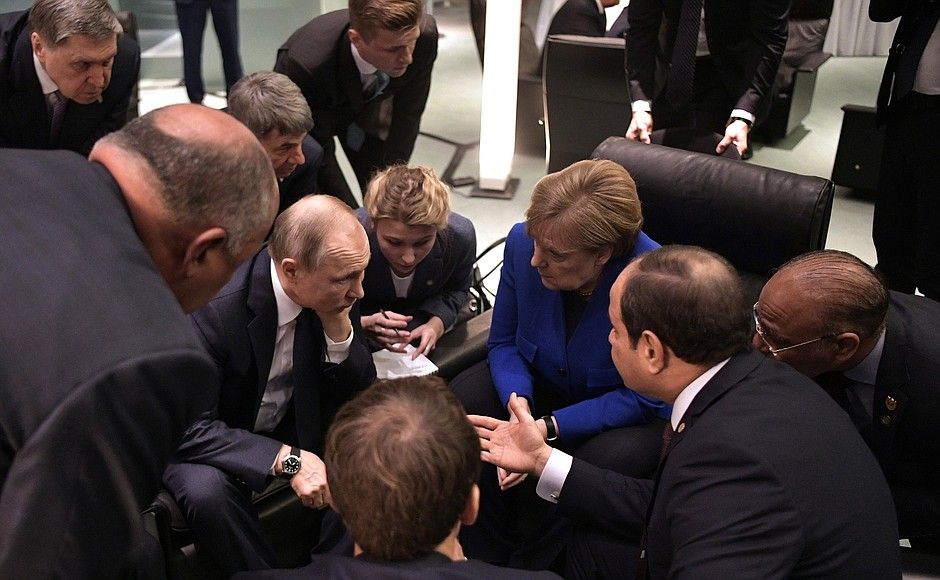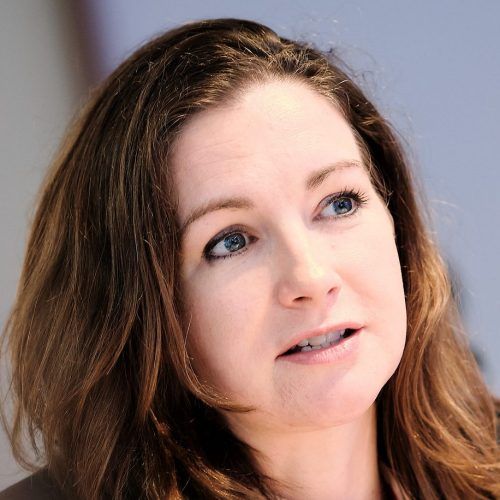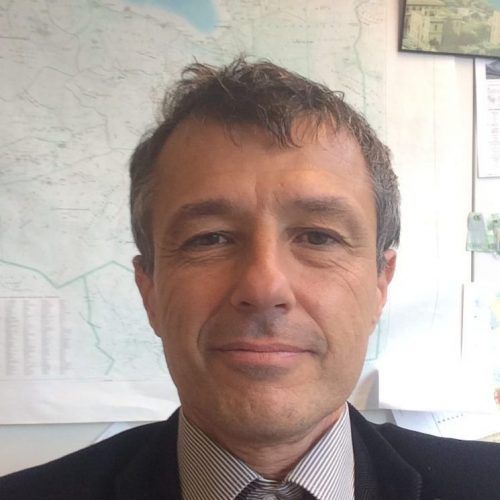
Summary
Who is responsible for Libya?
It is no longer possible to describe the situation in Libya as a ‘war’, argued speakers at our 9 March briefing on Libya. After all, the people do not have the power to determine its direction, nor its conclusion. That responsibility, instead, lies with the international actors, who, through apathy and/or misguided action, have contributed to the current chaos in the country and “a deep mood of fatalism” amongst the Libyan people.
But even amongst these international actors, the question of who is responsible for Libya remains. This question informed much of the debate, as the speakers debated who would determine the fate of Libya. The United Nations? The European Union? Turkey? Russia? Which of these can actually deliver sustainable peace to a country engulfed by conflict?
According to one speaker, the EU’s new Libya naval mission could facilitate UN efforts to negotiate a ceasefire, which include an arms embargo. However, it should not be interpreted as the EU’s answer to solving the conflict. That responsibility belongs to the UN.
But as the UN falters, with the resignation of its special envoy, Ghassan Salame, and flagrant violations of its arms embargo, another speaker suggested “it’s not always about who has the greater responsibility, it’s not always about where you can apportion blame, it’s who has the greatest imperative”. After all, it was in Europe’s interests to avoid the dissemination of the conflict and resulting migration issues, security threats, and destabilisation in its Southern neighbourhood. It was also its duty as a normative power to call out humanitarian atrocities and take a leadership role in the international response to the crisis.
However, the issue of responsibility was coupled with the follow-up question by moderator Dharmendra Kanani, Director of Insights at Friends of Europe, “Does Libya matter?” One panellist bounced off this question with a modification, “Does Libya matter as much as the UAE?”, suggesting the EU’s policies towards Libya will be diluted according to UAE interests.
Another participant argued that although Libya is a priority for the EU, there is no sense of urgency. The falling price of Libyan oil also means that the US no longer cares. However, prolonged inaction could result in unintended consequences, a repeated theme in this conflict (and throughout this debate), at which point, Europe might regret not taking a more pro-active foreign policy role in Libya.
“Impunity is the watchword”
Dharmendra Kanani questioned whether one of these “unintended consequences” would be a future world order of “disorder and impunity”, informed by the “anything goes mentality” of the Libyan conflict. This mentality has been shaped by the lack of international condemnation of drone strikes, intervening parties and humanitarian atrocities, where Russian mercenaries, Syrian foreign fighters, and Turkish forces can intervene in and control the conflict without international authorities putting obstacles in their way.
The sobering conclusion of this debate, seemed to be a resounding yes. One speaker warned “Europe’s silence on Libya sets a dangerous precedence”, where the normative power referee turns a blind eye to rogue players. To be geopolitical, one must be assertive – yet that the decision-making processes of the EU make this a difficult and lengthy process, while countries such as Russia and Turkey can and will decide to act in a fraction of that time.
The impact of the conflict on Libyan people
A final question from the audience switched the focus to Libya’s young people. The people of Libya have been shaped by the highs and lows of this extended conflict. Two-thirds of them are under the age of 30. All three speakers reflected on the impact of the conflict on young people in Libya. This is a generation whose hopes were raised by the promise of the Arab Spring, and ultimately dashed and trampled on by the prolonged conflict. A generation of young people have missed out on their education, others have abandoned theirs to fight in militias in a society with no other opportunities. Others leave Libya in smugglers’ boats after abandoning all hope of an end to the conflict.
Speakers concluded their contributions by discussing how the disillusionment experienced by the Libyan people is symptomatic of an entire region. The Arab Spring’s promised change failed to materialise. Both agree that for real change to come, there must be an alternative to an economic model entirely based on oil, or future generations will continue to be caught in the vicious cycle of promised change and frustrated expectations.
Conclusions
Overall, it emerged that the new EU mission is not a solution to the conflict in Libya, nor is it meant to be. The focus then shifted to how, and whether, the EU should make good on its geopolitical mandate and generate a pro-active foreign policy towards Libya. The potential consequences of failure in this regard could be dire.
A lack of international authority has created a culture of impunity in the Libyan conflict, and as the EU’s decision-making processes prevent assertive action, this could well define a future world order. This portends a bleak future for the Libyan people, unless alternative economic solutions are proposed and implemented. This suggests a potential role for the EU in its more traditional capacity.
About
The event is part of our Security briefing-series. In each 60-minute session, members have a chance to put their questions to those who call the shots, participation is by invitation-only.
The war in Libya poses a grave security threat to the EU and the whole of the Southern Neighbourhood. Its knock-on effects have serious implications, ranging from the increased risk of terrorist attacks to a possible uptick in illegal migration. Despite the agreements reached at the Berlin conference in January and the call for a cease-fire by the United Nations Security Council in February, the situation remains volatile.
In accordance with the EU’s professed aim of being ‘more geopolitical’, European foreign ministers have agreed to deploy a combined naval and aerial mission to monitor and secure the much-violated arms embargo. However, divisions within the EU – especially due to concerns that ships may attract more migrants and a lack of consensus on which Libyan faction to support – remain persistent.
Our briefing will bring together experts and decision-makers from across the public-private divide for a frank and open discussion on the latest developments on Libya. This briefing will offer an opportunity to address the below questions:
- What are the prospects for the new EU mission? Can it live up to its ambitions despite internal divisions?
- How can the EU, in cooperation with regional actors, guarantee the enforcement of the arms embargo and foster peace efforts?
- What role will other international actors such as Turkey and Russia play?
Related content:
Our events include photos, audio and video recording that we might use for promotional purposes. By registering, you give your permission to use your image. Should you have any questions, please contact us.
PHOTO CREDIT: Alexei Nikolsky/Kremlin.ru
Schedule
Speakers

Trustee of Friends of Europe
Mary Fitzgerald is a researcher and analyst specialising in the Mediterranean region with a particular focus on Libya. She has consulted for a number of international organisations including in the areas of peacebuilding and civil society. She has worked with the International Crisis Group (ICG), the United States Institute of Peace (USIP) and the European Council on Foreign Relations (ECFR) among others. She is a Non-Resident Scholar at the Middle East Institute in Washington DC, an Associate Fellow at the International Centre for the Study of Radicalisation, King’s College London and an Associate Fellow at ISPI in Milan. Mary has also worked on wider initiatives with UNESCO, the Anna Lindh Foundation, the British Council and other cultural organisations. Her writing has appeared in publications including Foreign Policy, The New Yorker, The Washington Post, Financial Times and The Guardian.

Head of the Libya Desk at the European External Action Service
Lorenzo Kluzer is an Italian diplomat, who has worked in a number of different capacities at the European External Action Service. In his current portfolio, he heads the Libya Desk, where he is responsible for monitoring and analysing developments in the country. He has previously been detached to the EEAS, with postings in Morocco, Tunisia, and Libya. Through this experience abroad, he has gained unique expertise on the Gulf and Maghreb regions.

Policy Fellow with the North Africa and Middle East Programme at the European Council on Foreign Relations (ECFR)
Tarek Megerisi is a political analyst and researcher, specialising in Libyan affairs and more generally politics, governance and development in the Arab world. Megerisi started his career in Tripoli, Libya with the Sadeq Institute and various INGOs, providing research and democratisation assistance to Libya’s post-revolutionary authorities. He is a freelance analyst and researcher, who advises on Libya policy for a range of international missions to Libya, commentates on Libyan developments for publications such as Foreign Policy, and co-authors policy briefs and assists with the Libya programming of numerous think tanks.
Activities
From ambition to action: building Europe’s Defence Union
Past event In person

- Area of Expertise
- Peace, Security & Defence
EU-Western Balkans Summit: Enlargement matters – Europe’s new…
Next event

- Area of Expertise
- Peace, Security & Defence
Frontline Voices: renewing the women, peace and security agenda
Past event Online

- Area of Expertise
- Peace, Security & Defence
Frontline Voices: diagnosing the disconnect – The Women, Peace and…
Past event Online

- Area of Expertise
- Peace, Security & Defence
Policy Voices | Overcoming polarisation: defence in the time of distrust
- Category
- Podcast
- Area of Expertise
- Democracy
Policy Voices | A historic NATO summit raises defence spending target to 5%…
- Category
- Podcast
- Area of Expertise
- Peace, Security & Defence
Living in a perpetual state of emergency
- Category
- #CriticalThinking
- Author
- By Jamie Shea
Beyond sanctions: five strategic tools the EU must use to end the war in…
- Category
- #CriticalThinking
- Author
- By Liel Maghen

- Area of Expertise
- Peace, Security & Defence

- Area of Expertise
- Peace, Security & Defence

- Area of Expertise
- Peace, Security & Defence

- Area of Expertise
- Peace, Security & Defence
Continue
the debate on
- Debating Europe
